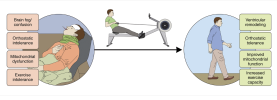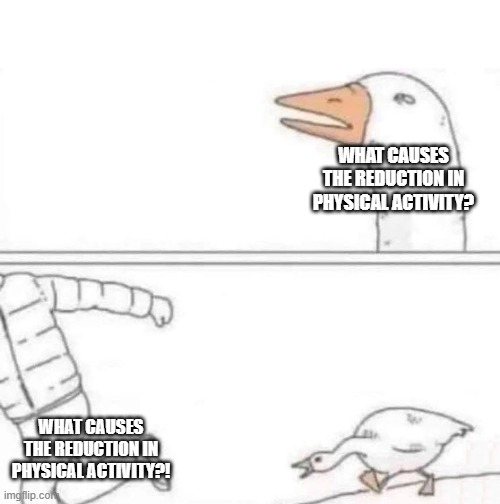Exercise Intolerance and Response to Training in Patients With Postacute Sequelae of SARS-CoV2 Long COVID: A Scientific Statement From the American Heart Association
William K. Cornwell; Benjamin D. Levine; Diane Baptiste; Nicole Bhave; Sarika Desai; Elizabeth Dineen; Matthew Durstenfeld; Justin Edward; Mu Huang; Roni Jacobsen; Jonathan H. Kim; Erica Spatz; on behalf of the American Heart Association Exercise, Cardiac Rehabilitation, and Secondary Prevention Committee of the Council on Clinical Cardiology; Council on Cardiovascular and Stroke Nursing; Council on Hypertension; Council on Lifestyle and Cardiometabolic Health; Council on Peripheral Vascular Disease; and Stroke Council
The postacute sequelae of SARS-CoV-2, also known as Long COVID, may affect 10% to 25% of individuals diagnosed with SARS-CoV-2. More than 100 symptoms have been reported among patients with Long COVID, but almost all patients report severe fatigue, orthostatic intolerance, shortness of breath, and reductions in exercise tolerance.
Emerging data suggest that cardiovascular deconditioning plays a major role in the development of this syndrome and that reductions in functional capacity among patients with Long COVID are comparable to reductions seen among individuals with cardiovascular deconditioning resulting from bed rest. Concern has been raised about the use of exercise training as part of the management strategy for patients with Long COVID. However, exercise training appropriately tailored to the patient with cardiovascular deconditioning may be an effective strategy to facilitate improvement in symptoms.
This American Heart Association scientific statement provides a concise yet comprehensive overview of mechanisms contributing to development of Long COVID and methods by which exercise training may be applied to this unique patient population to alleviate symptoms and improve quality of life. In addition, methods of reintroducing exercise and return to play among athletes affected by COVID-19 are discussed.
Link | PDF | Circulation [Open Access]
William K. Cornwell; Benjamin D. Levine; Diane Baptiste; Nicole Bhave; Sarika Desai; Elizabeth Dineen; Matthew Durstenfeld; Justin Edward; Mu Huang; Roni Jacobsen; Jonathan H. Kim; Erica Spatz; on behalf of the American Heart Association Exercise, Cardiac Rehabilitation, and Secondary Prevention Committee of the Council on Clinical Cardiology; Council on Cardiovascular and Stroke Nursing; Council on Hypertension; Council on Lifestyle and Cardiometabolic Health; Council on Peripheral Vascular Disease; and Stroke Council
The postacute sequelae of SARS-CoV-2, also known as Long COVID, may affect 10% to 25% of individuals diagnosed with SARS-CoV-2. More than 100 symptoms have been reported among patients with Long COVID, but almost all patients report severe fatigue, orthostatic intolerance, shortness of breath, and reductions in exercise tolerance.
Emerging data suggest that cardiovascular deconditioning plays a major role in the development of this syndrome and that reductions in functional capacity among patients with Long COVID are comparable to reductions seen among individuals with cardiovascular deconditioning resulting from bed rest. Concern has been raised about the use of exercise training as part of the management strategy for patients with Long COVID. However, exercise training appropriately tailored to the patient with cardiovascular deconditioning may be an effective strategy to facilitate improvement in symptoms.
This American Heart Association scientific statement provides a concise yet comprehensive overview of mechanisms contributing to development of Long COVID and methods by which exercise training may be applied to this unique patient population to alleviate symptoms and improve quality of life. In addition, methods of reintroducing exercise and return to play among athletes affected by COVID-19 are discussed.
Link | PDF | Circulation [Open Access]



